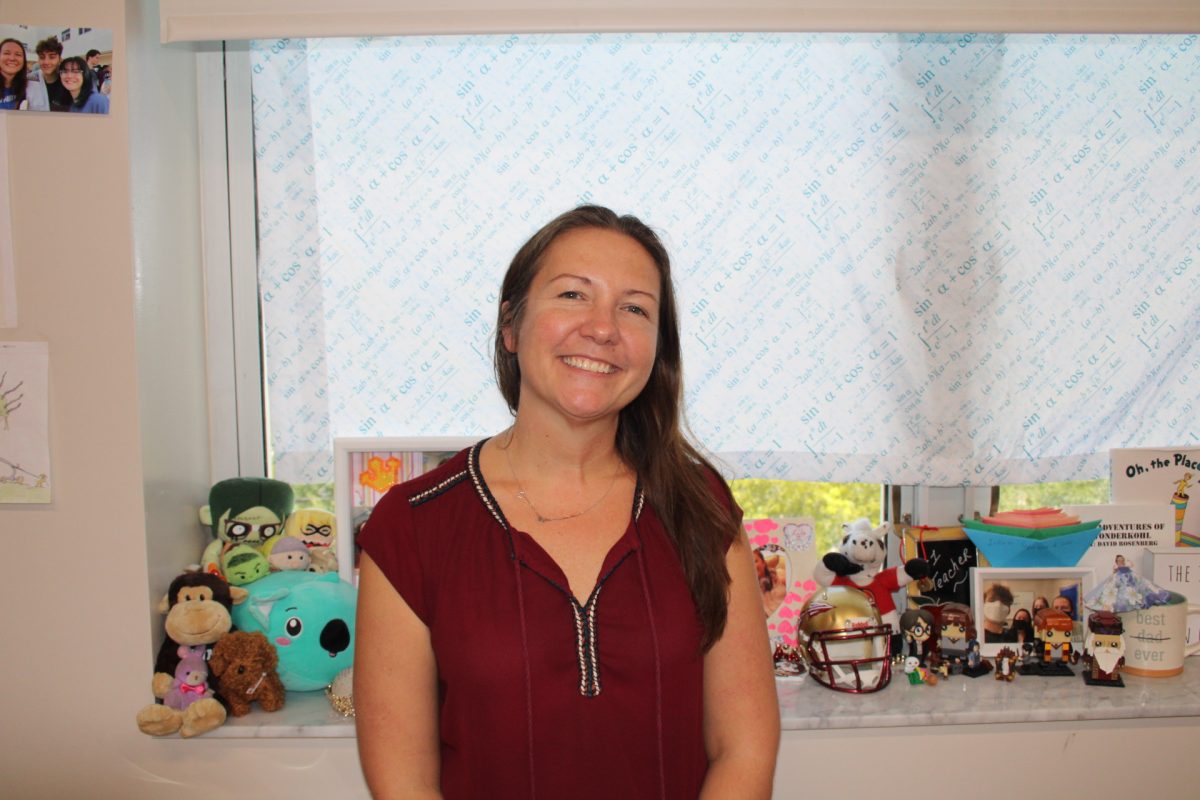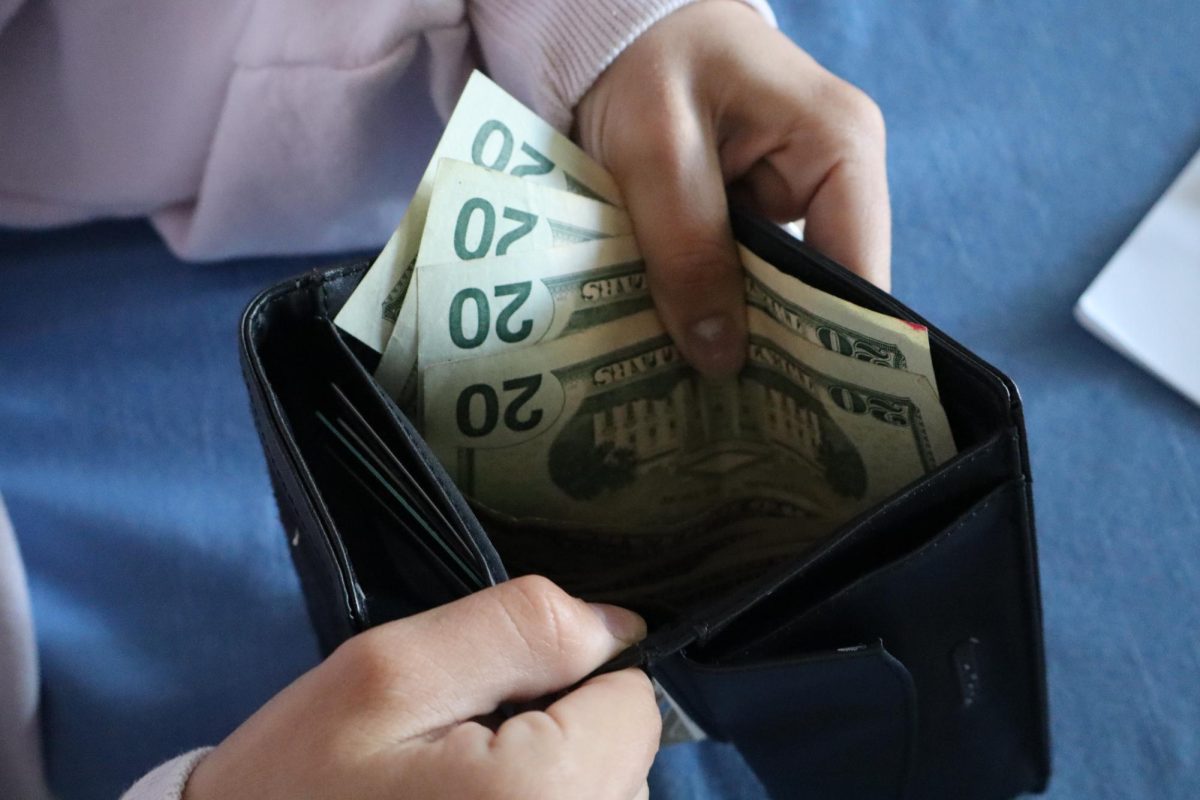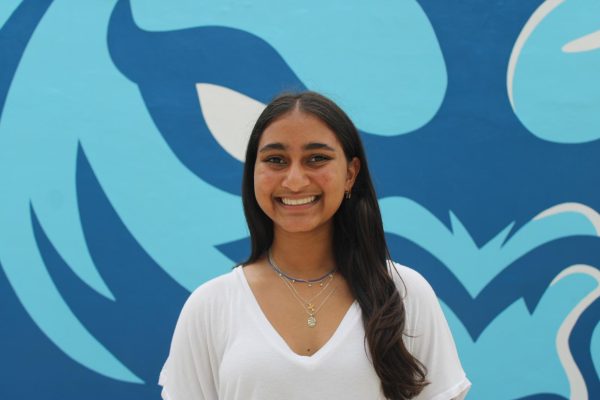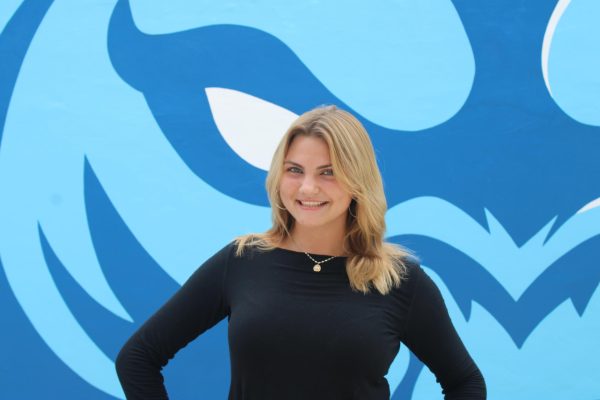The Panther: Hi, thank you so much for meeting with me today. I am so excited to learn more about you. So can you please tell me your full name and position?
Tuttle: Sara Tuttle, and I am the AP Calculus teacher.
The Panther: I want to talk to you about how you got the position of a calculus teacher at Miami Palmetto Senior High, some background on how you grew up and why you studied math. We can start with just math in general. Did you grow up with a love for math? What motivated you to study math in college?
Tuttle: So I was always good at math. I can remember in a high school math class, I was helping my friends, and my math teacher said that I would be really good at teaching math. I always sort of knew I wanted to be a teacher, though. When I graduated high school, I sort of veered away for a little bit because I was told what a hard job it was, without a lot of pay and a lot of benefits to it. But eventually, I realized it was what I really wanted to do, and because I thought of the support of my teachers before, math was the path I chose to do.
The Panther: So how long have you been teaching math?
Tuttle: I have been teaching here at Palmetto, and that’s my entire teaching career. I believe this is my 20th year at Palmetto.
The Panther: I know you went to Florida State University, but you went to the University of Florida first?
Tuttle: Yeah, so my mom was a gator; when I graduated high school, FSU was not even on my radar. I applied to a couple of in-state schools, but UF was my number one choice. I got into UF, and I spent my freshman year there; I just didn’t find a family feel there for me, and when I decided to sort of change majors into the education realm, then UF didn’t offer a math education program. So those two things kind of combined let me look elsewhere, and that’s when I transferred over to FSU.
The Panther: So once you graduated from FSU, did you jump right into teaching? How was that?
Tuttle: So I got my master’s immediately. I did my undergrad in four years, and then my master’s in four semesters. So summer to summer, and then I jumped right into teaching. So I moved down here and started teaching.
The Panther: You got your master’s in math education. And did you grow up in Miami?
Tuttle: I did not. So I grew up in Kissimmee, Florida, like where Disney World is. While I was at FSU, I met my husband, and he grew up here and went to Palmetto and everything. So when we graduated, he convinced me to give Miami a shot, and I moved down. I told him I’d give him one year to prove to me that Miami could make me happy. And he made sure that I was able to get a job at a good school and did everything he could to keep me around. And that worked out pretty, well, perfect.
The Panther: I wanted to talk about your role teaching at Palmetto, and if any significant moments in your teaching career had impacted your career life.
Tuttle: So when I first started, the department head and AP Calculus teacher was Susan Kaplan, and she took me under her wing and mentored me. I did not start teaching AP level classes. I think my first year teaching, I did Geometry Honors and Algebra II regularly and then slowly, just kind of kept building up. Geometry Honors was sort of a constant for me, for a while. Then I got into Pre-Calculus. Then, once people started retiring, the spots were opening up. So when Mrs. Kaplan retired, I was able to step a little bit into a calculus role. Then Mr. Garcia retired a couple of years ago. I got into the other, the BC realm of it as well. So it took a little, I think it took a good 10-11 years before I was able to break into the AP realm.
The Panther: How do you balance your personal, mom and home life with your professional life?
Tuttle: I really try to keep it separate. I really try to be just Mrs. Tuttle when I’m in these four walls, and then I try to be just mom when I’m at home. That, of course, bleeds into each other, it’s hard not to. Luckily, my children at home are really understanding of that, my husband as well, as well as my students. There’s a nice balance of that. But I think what makes me a good teacher also helps make me a good mom, so I try to embrace that. But there are definitely times when it’s overwhelming. It’s [overwhelming] to have so many hats on and trying to do it all at once.
The Panther: Do you have any advice for people who are trying to balance lives like that?
Tuttle: I think just keeping it as separate as you can, and then I think also giving yourself the grace to not be perfect all the time. Sometimes I don’t get to pre-make my notes for class because I don’t have time, or sometimes I don’t get to cook dinner at home because I don’t have the time. And that’s okay. You don’t have to be top-notch at everything all the time. You just do your best.
The Panther: And aside from Ms. Kaplan, are there any other mentors or role models in your life that you feel have shaped you?
Tuttle: So from way back, my second or third-grade teacher, Mrs. Bosma was who inspired me to be a teacher. My favorite high school teacher, Mrs. Evers, sort of helped guide the way once I started working here. Mrs. Kaplan, Mr. Migli was, they were a big support for me too. I was lucky enough to have lots of veteran teachers kind of help bring me up a little bit.
The Panther: Do you want to talk a little bit about your experience or role on the Honor Council, how that was for you?
Tuttle: Honor Council was really beneficial before the COVID stuff hit. It was around way before me, I think 10-15 years before I even started working here it was developed. It was the school’s way of trying to give students a second chance for making silly mistakes without being overly penalized by silly mistakes. I’m not trying to undermine what cheating is, but students feel so stressed and overwhelmed that there are times they make bad choices; you guys are still young adults, so you’re allowed to make bad choices and be able to find a way to bounce back. Once COVID hit and we all shut down, the program itself sort of hit a dip, and I don’t think we ever were able to kind of come back and have the right impact that we wanted to have. And so the school decided to go another way with that, and I think that’s perfectly acceptable.
The Panther: Is there any moment or student, or do you have a moment where you could say a student had a great impact on you?
Tuttle: There have been so many students that I still walk around with their names like at the tip of my brain. You know, you teach so many kids that there are definitely names you forget and there are stories you forget, but there are lots of students where they helped me become a better teacher, or I kind of learned a life lesson through that as well. I’m not going to name any, but there definitely have been a lot of students who have had an impact on me professionally as well as personally.
The Panther: How do you feel? You’ve shaped your students, teaching them and just giving them. I mean, sitting in your class, you can see you don’t only just give us math skills and math lessons, you give us life advice and you give us life skills. How do you feel you’ve shaped your students?
Tuttle: That’s a hard question to answer because I don’t know. I don’t know how I got so lucky to have students who truly seem to appreciate what happens in the classroom, right? I do try to keep an open mind and realize that math is not the number one thing for most of them. So I think by balancing that in my head, knowing that a lot of them have other things going on outside of the class, and taking that and respecting that about them, I think that helps. And I do think that a lot of the lessons that students learn from teachers are not so much content related as just character building, you know how to work through a hard problem, kind of thing. And I’m glad that it seems that I’m able to teach more than just the math of it, but I don’t know how that happens.










